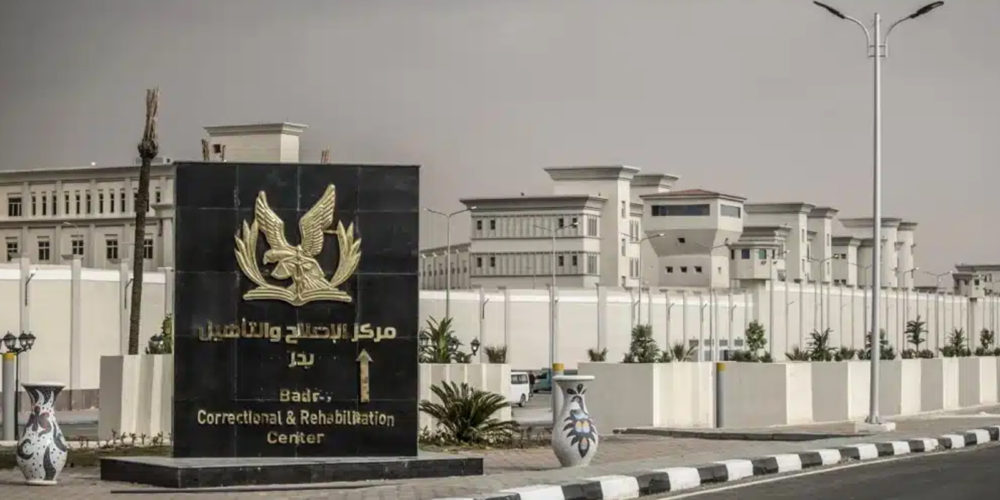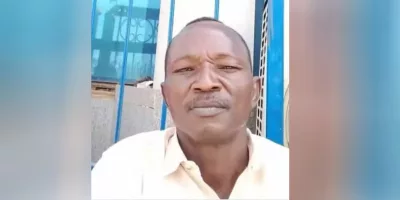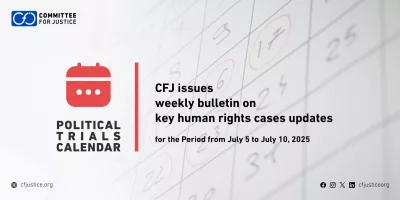Recent video leaks showcasing the conditions within the Badr Prison Complex—a facility often presented by Egyptian officials as a model prison —have spotlighted the magnitude of potential human rights abuses endured by detainees who oppose the Sisi regime and underscores the international community’s relative inaction.
Regardless of the accuracy of these leaks – whether the information they contain is true or the names of individuals mentioned are correct (as we were unable to verify their accuracy due to the lack of transparency from Egyptian authorities) – the observed reality and the facts emerging from inside rehabilitation facilities and detention centers in Egypt affirm the truth of the violations mentioned in these leaks, even in a general sense. The escalating death toll amongst detainees points to a pattern of medical neglect and inadequate living conditions. It’s worth noting that the Egyptian constitution, through its Articles 55 and 56, explicitly condemns depriving prisoners of health care and places the responsibility on the judiciary to ensure this, as all prisons are legally subject to judicial oversight.
Likewise, the reports about solitary confinement, which could extend for several years for political detainees, confirms the violation by the Egyptian authorities of Article 43 of the Egyptian Prisons Regulation No. 396 of 1956. This regulation was amended on March 20, 2022, and stipulates that solitary confinement should not exceed thirty days. For instance, the former Egyptian president, Mohamed Morsi, spent 6 years in solitary confinement before his death in custody.
Therefore, it constitutes a type of torture. Solitary confinement involves isolating detainees from all human contact for extended periods. This isolation negatively impacts their sensory, auditory, and visual experiences. Detainees are denied interaction with others and the ability to touch objects, leading to sensory and emotional hardships. Moreover, they suffer from reduced oxygen levels due to inadequate ventilation, promoting the growth of bacteria in their confined spaces, and frequently experience fainting episodes as a result.
This prompted the United Nations in 2011 to categorize long-term solitary confinement as torture prohibited by law, even if for short periods, noting that it often leads to psychological and physical suffering, as well as humiliation, rising to the level of cruel, inhuman, degrading treatment, or punishment. In some cases, it may even escalate to torture when the level of pain or suffering intensifies.
Adding to these concerns, the Badr Prison Complex itself, inaugurated by Egyptian authorities at the end of 2021 in the Badr area, northeast of Cairo, has earned a reputation as a facility where political detainees face harrowing conditions. There have been reports of numerous suicides among the detainees due to severe violations, such as the continuous use of bright lights in cells
around the clock, intrusive surveillance cameras that infringe on privacy, and the unjust practice of confining prisoners inside their cells without food or water for days.
Some prisoners have reported being subjected to electric shock torture as punishment for demanding improved treatment or changes. Additionally, one prisoner has even experienced sexual harassment by security personnel within the prison. Visitation rights are arbitrarily and selectively granted, often subject to the desires and discretion of security officials, with some prisoners being denied visits for years.
Prison authorities persist in prohibiting the entry of medications and personal necessities sent by families. They also prevent prisoners from attending their detention renewal sessions in person, allowing only online participation, and deny them the right to communicate with their lawyers and loved ones.
Hence, in light of these well-documented facts, any denial or claims of the inaccuracy of these events by the Egyptian Ministry of Interior would be regarded as propaganda. The Egyptian authorities have a history of resorting to such tactics to downplay their violations and shield them from international scrutiny. This is essentially an effort to avoid accountability and ensure that those responsible for these violations evade punishment, as indicated in one of President Sisi’s recorded leaks prior to assuming office.
Under President Sisi’s administration, prisons have tragically transformed into sites of suppressed dissent. The circumstances inside these detention facilities, characterized by grave conditions and medical negligence keep political prisoners in perpetual uncertainty about their well-being.
Considering all the information presented, the organizations undersigned unequivocally reject Egypt’s denial of human rights violations in prisons. They firmly assert that the documented and verified facts far surpass what these leaks have exposed. These leaked incidents represent only a small portion of the actual violations endured by political detainees within the Badr Prison Complex and across all Egyptian prisons.
The solution lies in discontinuing the security-centric approach to handling individuals detained on political grounds and adhering to international humanitarian standards and laws when addressing the detainee issue as a whole, regardless of their religious or political affiliations.
Furthermore, the undersigned organizations call on Egyptian authorities to prioritize transparency when addressing these leaks. Instead of denying their authenticity, they should allow for
international and human rights visits to be conducted with the detainees featured in the leaks. This would facilitate an assessment of their health conditions, especially considering that many of them are elderly, and an evaluation of the conditions they endure in detention. Such visits would ensure compliance with minimum international standards and rules for the treatment of individuals deprived of their freedom.
Moreover, the undersigned organizations request that the Egyptian prosecution take a more proactive role in addressing the violations occurring within the Badr Prison Complex. They should conduct thorough inspections and continuous monitoring, recognizing it as a detention facility under their jurisdiction. It’s important to note that the entire complex is extensively monitored by cameras, with recordings retained. This implies that the prosecution can effectively investigate all reported violations documented by human rights organizations.
Article 55 Coalition https://www.facebook.com/Article55egypt
(Committee for Justice (CFJ), El Shehab Center for Human Rights (SHR), Egyptian Network for Human Rights, Their Right (Haquhum), We Record, Arab Foundation for Civil and Political Rights-Nedal)






